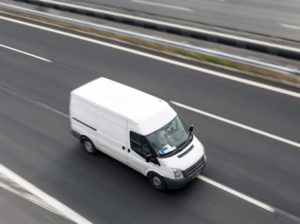UK van registrations rose 6.4% in February, marking the best February performance since 2008.

The data from the Society of Motor Manufacturers and Traders (SMMT) shows a total of 14,135 vans up to 3.5T were registered last month – up by 844 compared to the figure of 13,291 for February 2017.
Growth was driven by medium vans weighing 2.0-2.5 tonnes and pick-ups, which saw double-digit increases of 19.9% and 14.2% respectively. Demand for large vans weighing 2.5-3.5 tonnes also increased by 2.5%. Car-derived vans weighing less than 2.0 tonnes was the only segment to decline, falling 2.4%, although the decline equated to a drop of 24 vehicles. In contrast, rigids (3.5t-6.0t) fell 2.5% to 345 units.
Year-to-date growth remains steady, with the figure of 34,610 registrations for the first two months of the year down just 0.1% or 44 vehicles on the same period in 2017. Again, demand was highest in the 2.0-2.5 tonnes sector (up 8.8%) while vans under 2.0 tonnes declined 20.2%. Demand for rigids was up 17.2%.
SMMT chief executive Mike Hawes said: “February is typically a quiet month as buyers await the March plate change so the rise in demand is welcome news. However, with so much uncertainty in the UK at the moment and weak business confidence, we can expect further fluctuations in demand for the rest of the year.”
Russell Adams, commercial vehicle manager for Lex Autolease, said the uplift was very encouraging ahead of the March plate change and that the firm was already seeing a good number of enquiries from those looking to take advantage of the new plates this month. This includes particular interest in pickup vans, especially in the utilities sector, and a good level of enquiries for vans in the 2.5 to 3.5 tonne range.
He added: “As electric vehicle technologies progress and investment in the UK’s charging infrastructure increases, viable alternatives to conventionally-fuelled LCVs continue to improve. We will see new, heavier weight range electric vans introduced in 2018 that could provide some businesses with a genuine alternative to diesel for the first time. On top of this, electric vans should become viable for some heavier payload job roles when the Department for Transport’s plan to raise the maximum gross van weight is put into action.”

